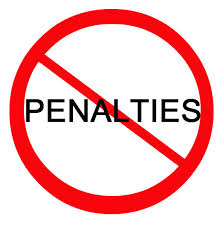
It has been held that merely as the assessee agrees to the additions made by the AO to purchase his mental tranquility and he has given an explanation which is not false, it does not mean that his conduct is mala fide. In such a case it would not be sufficient for the department to initiate penalty proceedings or impose penalty against the assessee under section 271(1) (c) of the Act. A mere agreement for addition does not constitute concealment of income and levy of penalty.
The highlights of the judgment:
This judgment deserves a special attention, not only as it provides an answer in the negative from to the question in favour of the taxpayer regarding levy of penalty stating that such levy cannot be automatic, but also has reasonably dealt with the controversy of penalty.
The issue of levy of penalty for concealment of particulars of income of an assessee has been dealt with the Apex Court and various High Courts in many cases appearing before them. A number of situations have arisen in different cases where an assessee, either during his scrutiny proceedings or during a survey at his place of business has accepted an addition as proposed by the AO. But an assessee cannot be penalized for concealment when his acceptance is made by him bonafide only to avoid litigation.
Background of penalty under section 271(1) (c):
A person is liable for penalty under section 271(1) (c) of the Income Tax Act, 1961 if the AO during any proceeding has reason to believe that he has concealed the particulars of his income or has stated incorrect details of income, the assessee is liable to pay a penalty amounting to up to three times of tax evaded for his concealment of income.
However, the revenue authorities initiate such penalty proceedings where the income assessed is more than that is filed in the return. In many cases it is practically not analyzed whether the assessee is guilty of concealment of income and notices under section 274 are issued without stating whether it is a case of concealment or that of providing incorrect details.
View of the Karnataka High Court:
The Karnataka High Court held that it should be remembered that penalty as per Section 271(1) (c) is a civil liability. An active concealment is not an essential element for attracting civil liability. This principle was also followed by the Apex Court in Union of India & Ors. vs. Dharmendra Textile Processors & Ors, 306 ITR 2772.
It was clearly mentioned in the findings of the High court that “Mens Rea” is not an essential ingredient for imposing penalty in case of civil liabilities. “Mens rea” denotes an evil state of mind which should be present if a person is a wrong doer knowing well that his action is against the law.
Under the law relating to income tax, the burden of proof that there is no guilty mind is on the assessee. The penalty cannot be imposed automatically even if the tax liability is admitted. Mere completion of assessment with a finding that the income assessed is higher than that which has been filed in the return does not automatically attract penalty. The levy of penalty is not a matter of natural course. It should be proved that the assessee has concealed his income or has filed incorrect particulars of income. Where there is no concealment, there can be no penalty. Penalties should be levied only in appropriate cases.
The Hon’ble Supreme Court in Dilip N. Shroff Vs.CIT (2007) 291 ITR has observed that penalty proceedings cannot automatically be adopted and the authorities have to consider the issue from different angles.